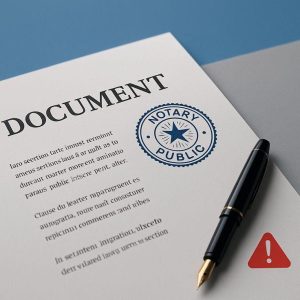Documents That Often Require Notarization
Notarization is a legal process that verifies the authenticity of a document and the identity of the person signing it. It adds a layer of security and trust to important documents. Here are some common types of documents that often require notarization:
Real Estate Documents
- Purchase Agreements: Contracts outlining the terms of a property purchase.
- Deeds: Legal documents transferring ownership of property.
- Mortgages: Loan agreements secured by real estate.
- Powers of Attorney: Documents authorizing someone to act on your behalf regarding property matters.
Legal Documents
- Affidavits: Written statements made under oath.
- Declarations: Formal statements affirming the truth of a matter.
- Powers of Attorney: Documents authorizing someone to act on your behalf.
- Living Wills: Documents expressing your wishes regarding medical treatment in the event of incapacity.
- Last Wills and Testaments: Documents outlining your wishes for the distribution of your property after your death.
Business Documents
- Articles of Incorporation: Documents creating a corporation.
- Bylaws: Rules governing the operation of a corporation.
- Contracts: Agreements between parties.
- Powers of Attorney: Documents authorizing someone to act on behalf of a business.
Financial Documents
- Loan Applications: Documents used to apply for loans.
- Retirement Plan Documents: Documents related to retirement savings.
- Trust Documents: Documents establishing a trust for asset management.
These common examples, however, the specific requirements for notarization may vary depending on local laws and regulations. It’s always advisable to consult with an attorney or notary public to determine if a particular document needs to be notarized.






